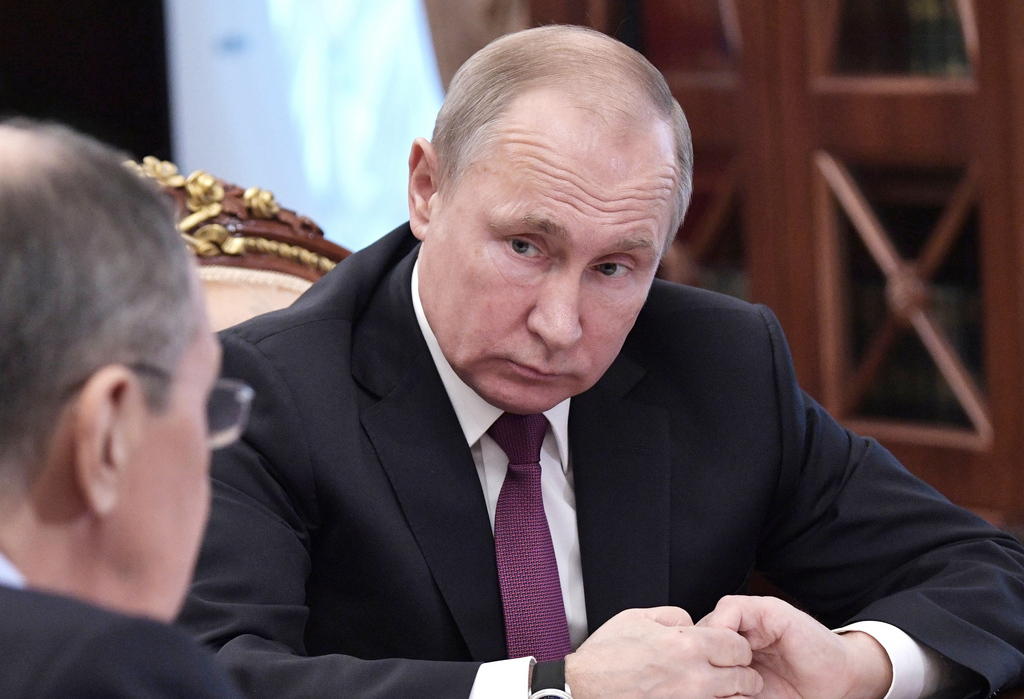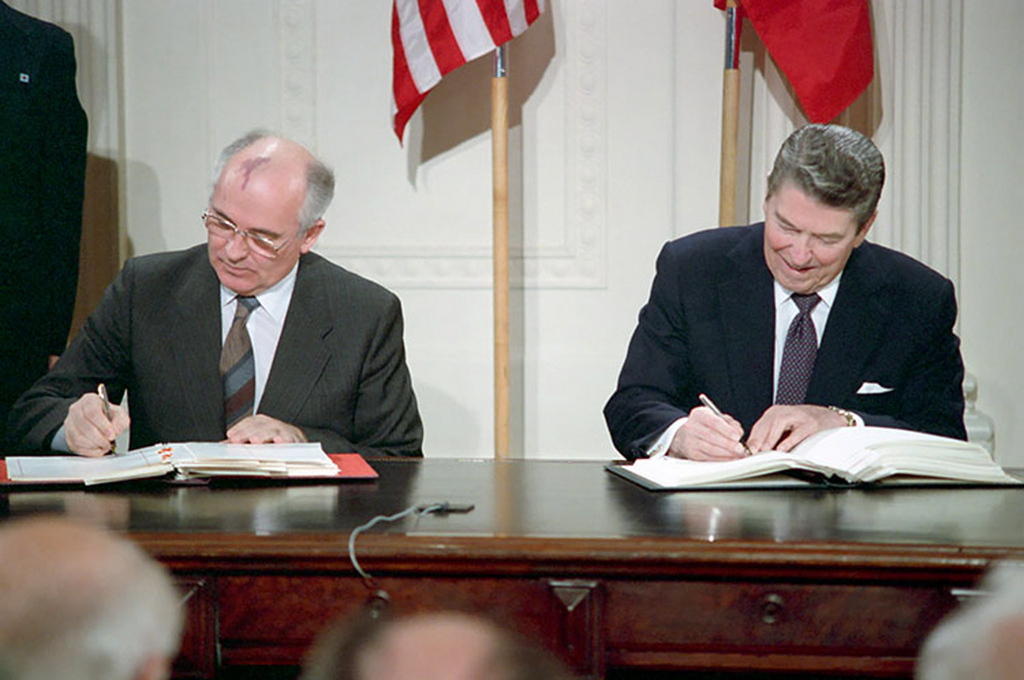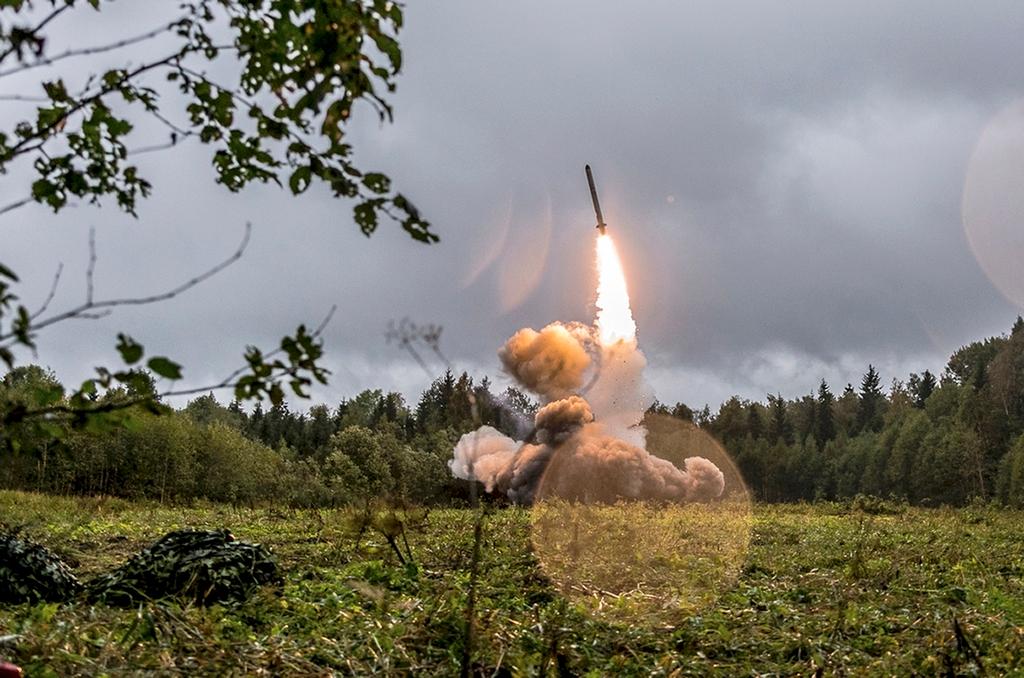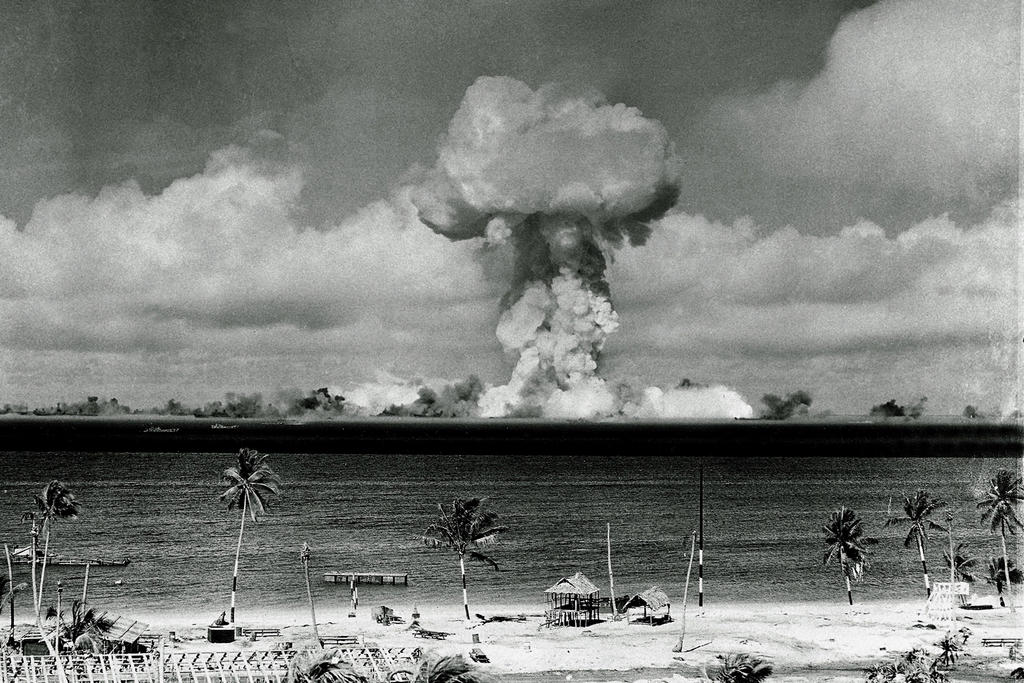Nuclear treaty suspension is ‘bad news for Europe’

The US withdrawal from the Intermediate-range Nuclear Forces (INF) treaty is bad news for everyone, but especially for Europe, say Swiss media.
Washington confirmed on Friday that the US is leaving the INF treaty, and Russia followed suit on Saturday. Both accuse the other of violating the treaty.
The INF treaty was a “guarantee that this continent would not become the scene of a nuclear exchange,” writes the Neue Zürcher Zeitung (NZZ) on Saturday. But now Europe must come to terms with the idea that Russia wants to keep the possibility of using nuclear weapons to destroy cities like Berlin, Paris and London. This helps cast off some illusions about the Putin regime, the paper continues, but it does not yet answer the key question of an appropriate response.
“No one wants to go back to the painful Cold War discussions about whether and how Europe should strengthen its nuclear deterrent,” says the NZZ. “But if Russia does not soon commit to a new arms control treaty, such a debate will become inevitable.”
This time the blame cannot be put on Donald Trump, says the Tages-Anzeiger newspaper. His predecessor Barack Obama had already warned that Russia was violating the treaty “that stopped the arms race overnight and acted as a protective umbrella for Europe”. This is a wake-up call for Europe, it continues. The answer must not be a new Cold War, but Europeans should think quickly about how to jointly develop their defence systems and strengthen their conventional forces, otherwise they will become “vulnerable to blackmail, and independence will have become compromised”.
The INF treaty suspension means the nuclear threat to the world has risen massively overnight, writes Fredy GsteigerExternal link for Swiss national broadcaster SRF. Russia will continue to invest in medium-range missiles and the US is likely to ramp up its programmes, he says. In addition, the new START agreement to reduce the number of Russian and American intercontinental missiles is due to expire in 2012, meaning that “the way will soon be virtually free for a new phase of nuclear armament”.
This is particularly threatening for Europe, because new medium-range missiles would be stationed here and deployed here in the event of a nuclear war, writes Gsteiger. “No wonder that more than 30 years ago there were already huge protests in Europe when medium-range nuclear missiles were to be deployed here,” he continues. “Many NATO countries do not want medium-range nuclear weapons on their territory. But Poland or the Baltic states, where the fear of Russia is greatest, could lend a hand.” Moscow would see missiles in these countries, near the Russian border, as a huge provocation. “Europe is facing dangerous times,” he concludes.

More
Switzerland regrets the suspension of INF nuclear treaty

In compliance with the JTI standards
More: SWI swissinfo.ch certified by the Journalism Trust Initiative


You can find an overview of ongoing debates with our journalists here. Please join us!
If you want to start a conversation about a topic raised in this article or want to report factual errors, email us at english@swissinfo.ch.